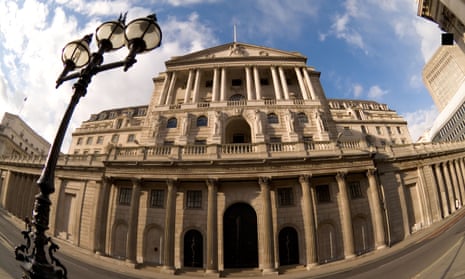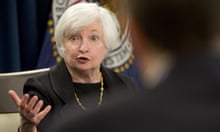The Bank of England has kept interest rates on hold amid signs that ultra-low UK inflation is here to stay for a while longer.
Members of the Bank’s nine-strong Monetary Policy Committee (MPC) voted eight to one to leave rates at 0.5%, where they have been since March 2009, in a repeat of voting numbers seen for the past two months.
Minutes of the MPC meeting [PDF] confirmed the Bank’s forecast for UK growth to slow to 0.6% in the third quarter, down from 0.7% in the previous three months.
However, it delivered some welcome news for households as it predicted inflation would remain close to zero for longer, staying below 1% until spring 2016.
David Kern, chief economist of the British Chambers of Commerce, welcomed the Bank’s decision to leave rates on hold. A rate hike now would threaten the recovery, Kern said.
“The UK recovery, although on course, is still fragile – it remains too reliant on consumer spending and is facing headwinds. Many major economies are experiencing difficulties that will inevitably increase the challenges for our exporters,” Kern said.
James Knightley, economist at ING, said next week’s unemployment and wage figures would be key to MPC voting patterns in November.
He believes other policymakers may join Ian McCafferty in voting for a rise next month if wages continue to increase, which would put pressure on inflation.
He added: “We continue to look for the BoE to raise rates in the first half of 2016, well ahead of the fourth quarter 2016 move financial markets are currently pricing.”
The outlook for Consumer Prices Index (CPI) inflation – currently at zero – is weaker than the Bank had previously forecast and eases any immediate pressure on policymakers to raise rates.
The minutes showed that McCafferty believed cost pressures in the UK would raise inflation above the Bank’s 2% target within two years.
He voted to raise rates to 0.75%, judging that an immediate hike would also allow a more gradual rise in the cost of borrowing over time.
The MPC said UK growth was recording a “gentle deceleration” since hitting a peak in 2014 and could continue to ease back if the global economy weakens. It said despite recent stock market falls prompted by fears over the slowdown in China’s economy, there had been few signs of a marked weakening in Chinese activity in recent data.
However, it added that the slowdown in other emerging markets, such as Latin America, had been “acute”.
The comments follow warnings late on Wednesday from the International Monetary Fund that risks of a global financial crash had increased as the slowdown in China and potential US rate rises threaten the stability of debt-laden emerging economies.
The minutes showed that some MPC members felt the outlook for world growth was “somewhat weaker” than forecast in the Bank’s August inflation report.
More details on the Bank’s outlook for UK growth and rates will be given in the next inflation report on November 5.
Markets are not expecting rates to rise until late 2016 or even early 2017 after a tumultuous summer for financial markets, prompted by fears over China, although many economists are still pencilling in a rise in the first quarter of 2016.
Thursday’s minutes also showed that the MPC was unanimous in holding its quantitative easing programme at £375bn.






Comments (…)
Sign in or create your Guardian account to join the discussion